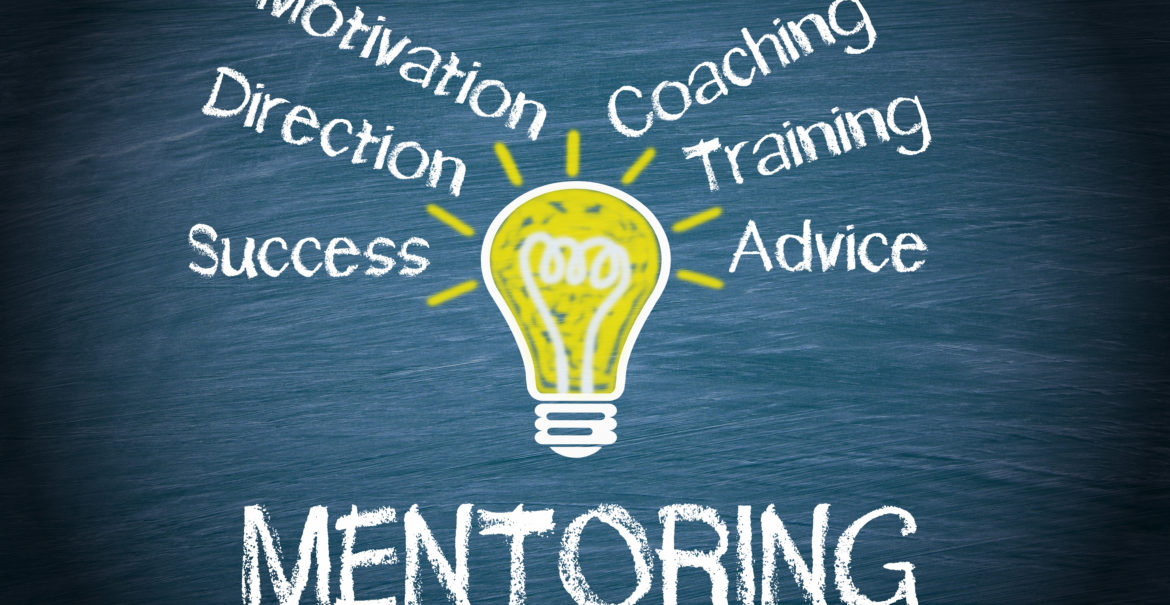
Meesh Pierce is the Host and Producer of the podcast, MENTOR dna. Meesh began her career in entertainment during the heyday of grunge rock. Coming out of business school, Meesh took a risk and started an early dot com custom merch company, snacki, in the late 90s. Then, Meesh went back to her entertainment roots at Ticketmaster. A few years later when the real estate market was in full throttle, she took an opportunity to learn commercial and residential real estate development from a seasoned investor. She then spent 15 years as a hired gun consultant focused on strategy, product, and marketing. As an independent consultant, Meesh has worked with Epson, Mercedes (AutoGravity), Fandango (NBC), and Amor Boutique Hotel, amongst others.
Here is what Meesh had to say when we asked her about leadership and mentorship:
GenHERation®: Throughout your professional journey you have held roles in tech, finance, retail, and more. What is the one skill that has allowed you to succeed in these different industries?
Meesh Pierce: There are a couple. I think one in particular transcends through all industries, and that skill is humility. Being humble and being able to say you don’t know something is okay. Sometimes you need to rely on others and ask for help. It can’t be a one-person show all the time. When I talk to CEOs on my podcast, like Andrew Cherng, CEO of Panda Express, Susan Natland, Sr. Partner at Knobbe Martens, or Bill Schlough, CIO of the San Francisco Giants, these C-suite individuals all say humility is an important quality they look for when hiring. They do not want the know-it-all who is unwilling to continually learn. They all want to hire someone with a growth mindset.
GenHERation®: When you are a student, how can you discover your strengths and passions, so you can pursue a career that nurtures both?
Pierce: It is important for young people to think about the magazines they read, the podcasts they listen to, and how they spend their free time because these answers are telling. For me, I read Fine Homebuilding, a total geek magazine. I’ve always loved learning about homebuilding and have found myself drawn to remodels and new builds, which to me, is very similar to building software. You have to think about the end user and optimal layouts. I just love it! When you’re young, really pay attention to what you love, why you love it, and build from there to find an internship or job. If you like sports, for example, ask yourself what about sports you love. Is it the excitement? The statistics? The relationship building? You have to discover what truly gets you excited; not just the answers you write on college essays because that’s what you think someone wants to hear. The most successful people I know have found a way to leverage their true passions.
GenHERation®: How can you develop your adaptability skills to succeed in a world that is constantly changing?
Pierce: You have to be aware of things happening around you. In high school, and to a certain degree in college, you are inwardly focused. Your focus is usually to get good grades. In college and beyond, be more open. In a work environment, be aware of what’s happening around you. If a team member is having a bad day, it’s important to spend time with them. Be a great communicator, both written and in person, and always be willing to learn. The world changes so quickly that maintaining your curiosity and passion to learn will keep you at the forefront. For example, I served on a school board at my kids’ school and we were in the midst of a $20M capital campaign to build a new school. I was asked to be on the construction committee because they knew I had such a passion for the school, its students, construction, and working with cross-functional teams. By building a fantastic team of volunteers that brought the right skill sets and asked the right questions at the right time, we were able to build an incredible new school.
GenHERation®: How can students embrace an entrepreneurial mindset in their daily lives?
Pierce: It really requires you to be comfortable with making mistakes. Successful software development requires having that growth mindset. About 10 to 12 years ago, Google came out with Google glasses. The idea was that you could view the internet through these glasses. The prototype was built in six hours with a massive laptop strapped to a backpack and wires hanging all over the place, which proved the engineers’ theory that this product could work. They got a basic version of their concept working. Even though in the long term the market wasn’t quite ready for this type of product, Google failed fast and learned, so they could move on. As an entrepreneur, you will try things and fail often. There is this notion of “fail fast.” If you fail, you want to fail fast, iterate, move on, and see if you can create a better working version of whatever you are trying to do. You can be what’s called an intrapreneur in a company as well. At Ticketmaster, using a growth mindset, we built a lot of small companies and products within the main company.
GenHERation®: What strategies can you utilize to ask effective questions that advance your personal and professional goals?
Pierce: You want to do your homework. You never want to go into a job interview without looking at the company’s website and knowing what that company does, and with whom you’re interviewing. Stand out by being prepared.
GenHERation®: What steps should you take to find a mentor, and once you have a mentor, maintain this relationship?
Pierce: I think it’s communication. Sending updates goes a long way. People, by nature, want to help people. I am older in my career and I personally want to help younger people. It makes me feel good, and I don’t expect anything in return. There are people I have helped, and I always get excited when they message me and say, “I got this job.” Be grateful and thank the person who helped you. Handwritten notes are great! Find their address and write them a thank you. If someone writes you a letter of recommendation, write them a thank you to show your gratitude.
GenHERation®: What qualities do the most effective leaders possess?
Pierce: Being able to see beyond yourself. See the entire organization. Listen to people. Watch people. Read body language. Are they avoiding eye contact, slouching, giving side-eye to someone next to them? Check in with them. Also, humility, strong communication, the desire to learn, and having grace for oneself and others.
GenHERation®: What is the best piece of advice a guest has shared with you on MENTOR dna?
Pierce: One, is to always eat chocolate! Also, showing gratitude is so important. It doesn’t matter where you are in an organization. Be really grateful and appreciative of every opportunity that comes your way. They might work out differently than you expected, but that’s okay.
Meesh Pierce is the Host and Producer of the podcast, MENTOR dna. Meesh started her career in entertainment during the heyday of grunge rock. Her early days at Disney and Sony Music introduced her to the corporate world and importance of connectedness. She worked long hours answering phones, faxing toy concepts, and sneaking into hole-in-the-wall concerts until the wee hours. During the early internet days, Meesh bet that tech was going to materially change the entertainment world, so she headed back to Philly for her 2nd stint at Wharton. As a freshly-minted business school grad, she stepped into product management gigs for the likes of NBC, Sony Digital Entertainment, and Ticketmaster. A risk taker, Meesh started an early dot com custom merch company, snacki, in the late 90s. A few years later, she took an opportunity to learn commercial and residential real estate development from a seasoned investor. She spent 15 years as a hired gun consultant stepping into difficult 1–2 year projects; those that needed someone adept at strategy, product, and marketing, and comfortable navigating across divisions and up to the C-suite and board. As an independent consultant, she’s worked with Epson, Mercedes (AutoGravity), Fandango (NBC), and Amor Boutique Hotel amongst others. Meesh now serves on boards, as advisor to several organizations, and mentor to many. She loves using her experience to make connections between people and ideas.



Comments (0)